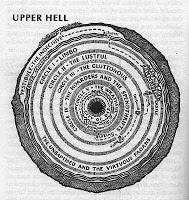Most people, and many writers, conceive of writing as a craft. Concrete metaphors of woodworking, pottery, gardening all come up when people talk about the process of writing. They are all helpful models for understanding the approaches people take to writing.
It should follow then that, if we learn and practice our techniques, if we become discerning experts at judging the quality of the raw materials (the language), if we make a full investigation of the market (our target readers), then there is no reason why writing should not be easy. And yet it is never easy.
This is not to say that good grammar, clever plotting, insightful characterization and a deft hand with dialogue don’t contribute to producing a good story. But you can and probably have executed all those things in a story and still end up with something that doesn’t quite shine.
Why is that?
Well, mostly because you can teach students ‘technique’ until the cows come home and only a handful of them will become really good writers. You can conceptualize language as a raw material, but it’s not stable like wood or clay or soil. And readers are not static, passive receivers of the text. These two aspects of writing are very problematic: language and the reader. What makes them both so challenging is that neither of the buggers will sit still.
When we work with language, we need to acknowledge that it is much more like a living organism than like the materials a craftsman might use. Language is growing and changing all the time, language squirms. A word might have a set meaning for you, here, now, at this very moment, but it may have completely different nuances for the reader. In fact, it always does and, what’s worse, those nuances are different for every reader who encounters your work.
Now, don’t spend too long thinking about that because it’s sure to do your head in and make you consider never writing another word. It’s not meant to make the task of writing sound impossible. It’s meant to remind you to cut yourself some slack when you struggle to write something that just doesn’t want to come out right. It’s meant to remind you to shake your head and smile when, after working so hard and putting your heart into something, the piece isn’t received with the enthusiasm you felt it deserved.
I’m going to make a statement that is very untrendy, very unpopular these days. Writers are artists. We are cartographers of human experience. And that, by its very nature, makes us abstract artists.
And when it comes to writing erotica, writing becomes an even more daunting challenge, because our culture has such a problematic relationship with sex. Even in the midst of all this marketized tits and ass, assailing us from every direction, we live in a culture that very rarely speaks openly and honestly about the erotic. And that very reluctance to speak about it has twisted the thing itself.
Borges in ‘On Rigor in Science’ has likened literature to a map laid atop the landscape of reality. It can’t simply be a reproduction of the landscape or it would have to be as big as the world itself and be of no use as a map. It must, by necessity, be an abstraction, a synecdoche of reality.
When it comes to erotic literature, we’re making maps of a very murky landscape. So many of its features are obscured in the fog of gender war, of shame, of religion, of a positivistic modernism that rejects emotion as unquantifiable and, therefore, irrelevant. Whatever maps we make are going to, by necessity, to be imperfect ones. And the features you decide to highlight in your map may or may not find resonance with the reader.
So yes, technique matters. And yes, experience is useful. But ultimately, you can never control how your reader ‘reads’ your story. You can only hope that your particular map gets into the hands of people who are intrepid explorers. You can only invite the reader to take as much delight as you do, in certain features. Beyond technique and structure, what all good writers have in common is a sincere and genuine obsession for the terrain they are charting.
It’s worth remembering that, although maps can be useful guides, they tell us as much about the mapmaker and the culture she or he lived in as they do about the territory they are surveying. And, even when those maps are no longer of any use as guides, they are beautiful works in themselves. They are artifacts and the people who make them are interpretive artists.







RG,
The sexiness of linguistics! I hadn't thought of writing as cultural map-making but I can see that making perfect sense as a metaphor.
Exciting and enlightening as always 🙂
Ash
Thank you, Ashley. I'm glad you enjoyed it.
Another well-written piece that made me stop and think. Thanks for reminding us how fluid the writing experience can be.
Yes, another spot-on, thought-provoking post. Although in the editing phase of writing, I'm thinking all about the language and character development and such, in the first-draft phase, it is as if the story is being dictated to me by a guide who helps me explore this uncharted territory. So I definitely related to your analogy for the writing process!
Fantastic extended metaphor, RG! And spot on. Honestly, I've come to believe that it's impossible to accurately describe erotic experience. Words only allow us to suggest … the reader extrapolates from our hints and fills in the blanks from his or her own experience or fantasies.